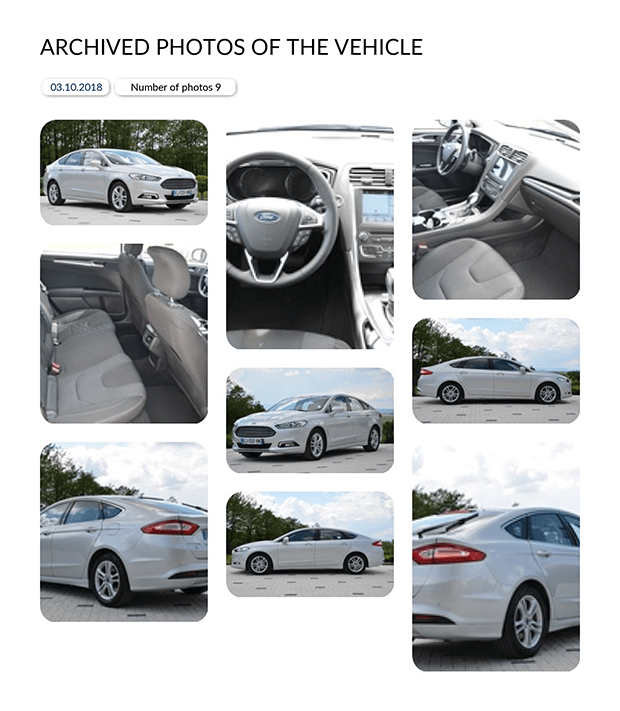Checking vehicle history is the most important thing you need to do before you buy a second-hand car. Failing to do so may cost you a lot. Remember, hidden faults may be expensive to remove.
Listed below are the most important elements you need to pay attention to while buying a second-hand car.
VIN number of the vehicle
Also known as the body number, the VIN is a unique, 17-character vehicle ID (VIN - Vehicle Identyfication Number). By decoding the VIN, you can determine the model year, body type, and even the equipment originally installed in the vehicle. This is why you should always ask the seller for the VIN number of the car you wish to buy. Decode the VIN and compare it to the information provided by the seller.
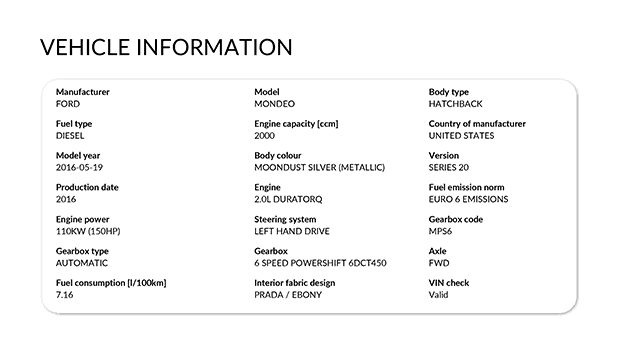
Equipment
Comparing the actual equipment in the car with what it was originally equipped with may help you find out if it had any accidents. Repairing a vehicle which was badly damaged is costly; sellers will often try to make savings by replacing the original equipment with its cheaper equivalents whose specifications are different. This is why when you’re buying a second-hand car, you should always check the colour of upholstery, paint and glass, the colours of such elements as protectors, bumpers, mirrors, handles, etc., as well as if the mirrors are heated and folding, if the car has the front and back windshield heating, how many air bags it has and even if windows are electric. Don't forget about the seemingly unimportant extras such as the type of navigation and audio systems. If these are damaged as a result of an accident, they will most likely be replaced with non-genuine or second-hand parts taken from a different model and they will have different specifications.
You can see that a vehicle is sold with different components than those it left the factory with, or additional equipment has been installed. Pay attention to such elements as electric windows or a sports package.
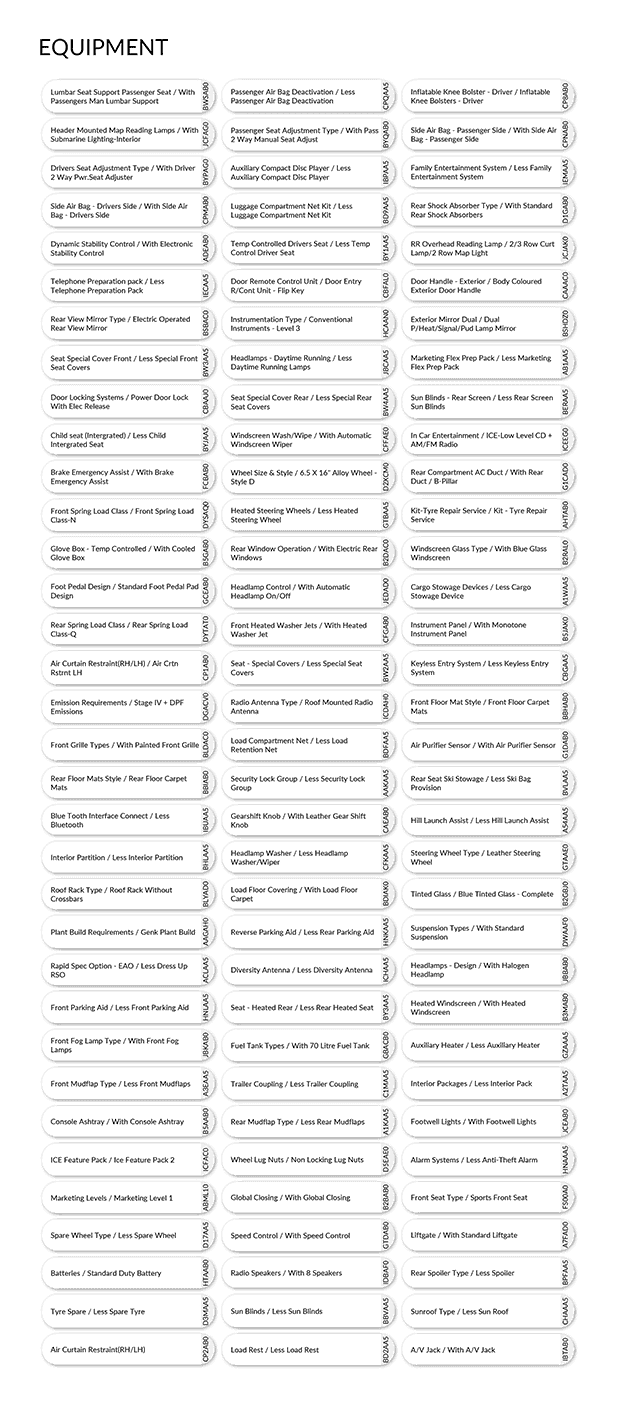
Stolen vehicle databases
Check the databases of stolen vehicles to make sure that it is legal to purchase the vehicle at all. If the documents are authentic and the vehicle is legal, you can be sure it has not been stolen and it won’t be included in any stolen vehicle database. Buying or owning a stolen car can cost you a lot; not only would it be taken away from you but you would not get the money back, either.
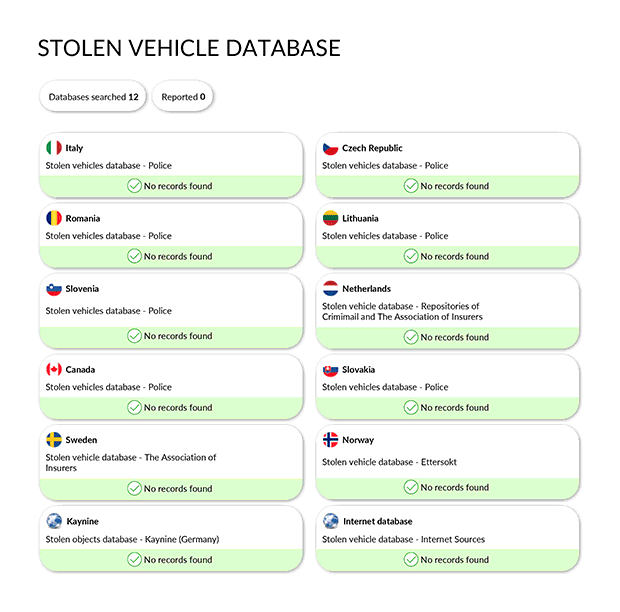
Odometer clocking
Odometer clocking is a common practice in many countries, not
just in Poland.
It
is
estimated that in Germany alone 30% of second-hand vehicles sold
have had the odometer
clocked. No such data is available for Poland but the
practice might even be
more
common than in Germany. It is not hard to explain why so many cars
are sold in this way; the
greater the mileage, the cheaper the price and the longer it takes
for the vehicle to sell.
In
fact, in some imported cars, the odometer may even be clocked
twice: first
abroad, and then again, in Poland. AutoDNA gathers information
regarding
mileage and if such information is available for
the given vehicle, it will
be
included in the report.

Damaged and salvaged vehicles
Damaged and salvaged vehicles are easiest (and cheapest) to buy. Most of them are imported from Germany and the Netherlands but the number of salvage vehicles in Poland has been growing together with the number of vehicles registered in Poland. Since salvage vehicles are an easy way to make profit, they are popular among professional second-hand car dealers. This is why you should check if autoDNA shows any information regarding damage when you enter the VIN number of the vehicle you want to buy.

Tax Liens
Tax liens are used by offices to enforce due taxes, social security contributions or fines or tickets. It also burdens the car when the property is transferred to a person who has no tax arrears. Therefore, it is very important for the buyer of a used car whether a given car has a tax lien or not.

Vehicle use
Vehicles that were used as taxis will have driven 400-500,000 km. Compared to privately owned vehicles of the same model year, their mileage will be at least two times greater. Lease and fleet vehicles are much easier to verify. Most of these are sold by the leasing company which will not hide the vehicle history from the buyer. When it comes to the technical condition of the car, though, you can never be certain until you check. Some of these cars or machines will have been damaged or made incomplete on purpose while others will be in perfect condition. The same applies to cars which used to be owned by car rental companies; there is no rule when it comes to their technical condition. Still, judging by the number of people who rented and drove it over the years, each of them with different skills and experience, you can assume the condition won’t be too good.
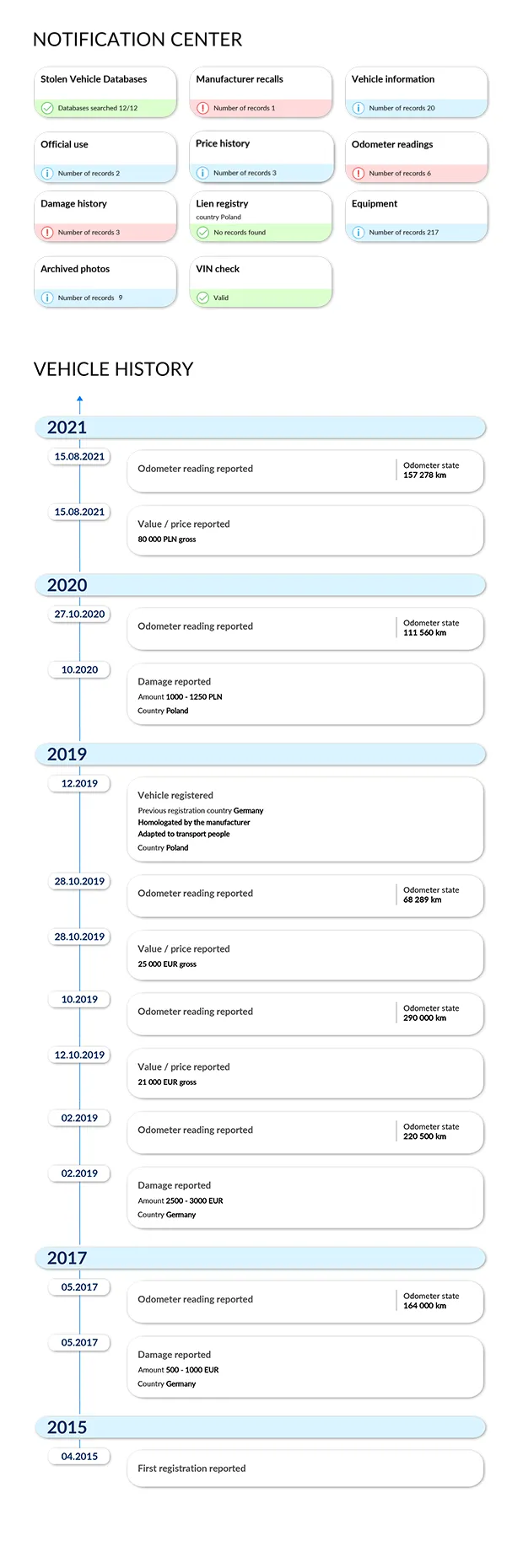
Photos of the vehicle
When buying a second-hand car, it is good to look at its previous photos if these are available. You may not know that the car of your choice has had accidents or collisions but pictures will show you any repairs and modifications; compare them with what the seller's photos are showing and you will easily spot any discrepancies.
If there is a number of photos available and they were clearly made in different periods, this may also suggest that the car was put on sale a number of times, by the same or a few different owners.
